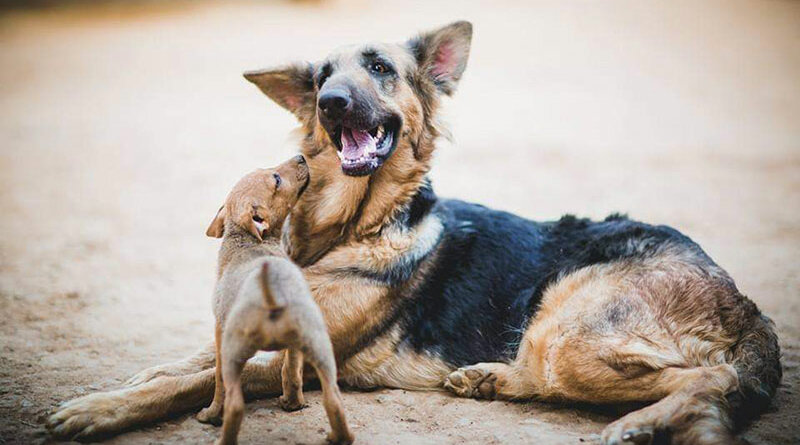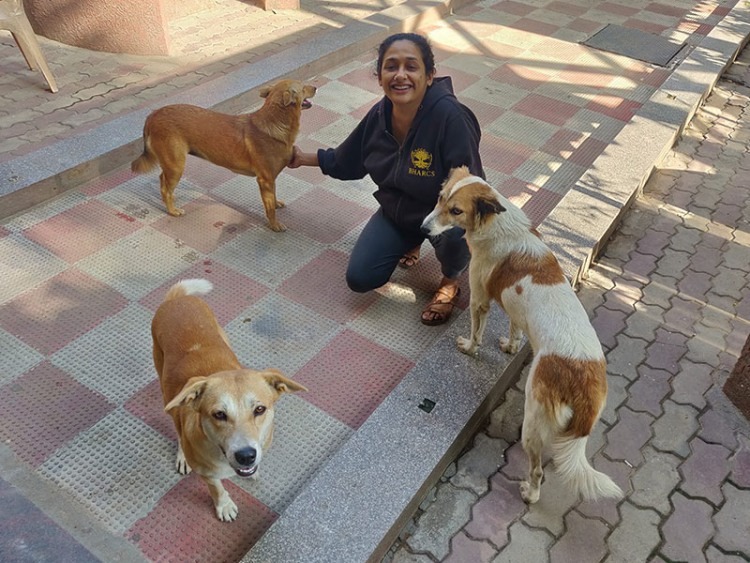Caring for Street Dogs in India
India has been under a rather stringent lockdown. Most shops remain closed, including most restaurants, bakeries and even several meat shops and grocery stores. Many of these establishments were significant food sources for street dogs, along with garbage dumps. There has also been a reduction in garbage generation. The net effect of all of this, along with the reduced movement of people, is a steep drop in food sources for street dogs.
Street dogs rely heavily on people’s generosity as well as their garbage. Starvation apart, the initial part of the lockdown caused a lot of confusion in the dogs. They were disoriented, and that seemed to make them panic. As a result, many dogs started straying away from their usual territories. This is dangerous for them because moving into other territories can lead to fights, and some dogs may be fatally injured in such fights. The drop in resources is also known to lead to conflict among dogs. So these dogs do face not just starvation, but also, grave injury and death resulting from both. For India, this can be very bad news, because animal carcasses can result in other rat- and flea-borne diseases. Not to mention, the inhumanity of it all.
The saving grace in these times is the spirit of the streeties’ caretakers. Thankfully, the government of India and the Animal Welfare Board of India also issued circulars encouraging feeding of street animals. Several political leaders and policemen are setting the right example by going out and feeding the dogs themselves or extending support to those feeding the dogs. This has resulted in many more citizens stepping out to feed the dogs right outside their homes. But this by itself is not sufficient. The more seasoned streety-feeders have scaled up their operations to feed hundreds, if not thousands, of dogs. It is back-breaking work and they are in need of financial help as well. Still, it is heartening to see the people of the country care for these animals.
GET THE BARK IN YOUR INBOX!
Sign up for our newsletter and stay in the know.
The animals, in turn, are rapidly learning to cope. Many of these dogs are known to be very discerning about what they eat. But not anymore. The fighting seems to be diminishing. As they find ways to fill their bellies, the panic seems to be reduced. But what is rather interesting is that they are demonstrating that apart from food, they also need contact. Yesterday, when I was out feeding, I found a few dogs who were not feeding in a frenzy, but actually walked away from the food to ask if I could pet them. The need for human contact, in itself, seems to be a consistent need for these dogs. These dogs actually seem love us, not just the food we give them. There’s more to it.
Bismi Anil, founder of Duma’s Animal Welfare Trust, is one of the streety-feeders who has been doing this for years and has now scaled up her efforts. She beautifully chronicles how the behavior of these dogs has changed over the course of this lockdown, somehow magically making time to jot down her impressions in the middle of cooking for and feeding more than 400 dogs each day.
Editor’s Note: We encourage you to visit the Duma’s Animal Welfare Trust FB page to learn more, as well as to contribute to their excellent work if you are able.






